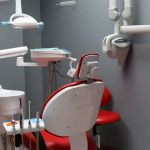How Dental Crowns Help Restore Damaged Teeth
- 1. Understanding Dental Crowns
- 2. Benefits of Dental Crowns
- 3. Why You Might Need a Dental Crown
- 4. How Dental Crowns Are Applied
- 5. Real-Life Case: Restoring Damaged Teeth with Crowns
- 6. Take Action: Consider a Dental Crown for Your Damaged Teeth
1. Understanding Dental Crowns
A dental crown is a cap that is placed over a damaged or decayed tooth. It encases the tooth to restore its shape, size, and strength, as well as to improve its appearance. Crowns are often used to cover a tooth that has been weakened by a large filling, root canal treatment, or decay. They can be made from various materials, including porcelain, metal, or a combination of both, depending on the location of the tooth and aesthetic preferences.
2. Benefits of Dental Crowns
Dental crowns offer several significant benefits that make them an effective solution for restoring damaged teeth. Some of these benefits include:
- Protection: Crowns provide strength and protection to weak or fragile teeth, preventing them from breaking or further damage.
- Improved Functionality: They help restore the function of the damaged tooth, allowing you to chew and speak comfortably again.
- Cosmetic Enhancement: Crowns improve the appearance of damaged teeth, especially in the case of visible front teeth, enhancing your smile.
- Longevity: Dental crowns are durable and can last many years with proper care, making them a long-term solution for tooth restoration.
3. Why You Might Need a Dental Crown
There are several reasons why a dental crown might be necessary. Some of the most common situations include:
- Severe Tooth Decay: If a tooth is extensively decayed and cannot be restored with a filling alone, a crown is used to restore its structure and function.
- Root Canal Treatment: After a root canal, a tooth becomes more brittle and is at risk of breaking. A crown provides additional protection and restores the tooth's strength.
- Fractured or Broken Teeth: Crowns are commonly used to cover teeth that have cracked or broken, preventing further damage and restoring the tooth's appearance and function.
- Large Fillings: When a filling becomes too large to effectively restore a tooth, a crown may be used to encase the tooth and provide stability.
4. How Dental Crowns Are Applied
The process of getting a dental crown typically requires two visits to the dentist. Here's a general overview of the procedure:
- Initial Visit: The dentist will assess the damage to your tooth and prepare it by removing any decayed or damaged portions. They may take impressions of your tooth to create a custom crown that fits perfectly.
- Temporary Crown: If necessary, a temporary crown will be placed on your tooth to protect it while the permanent crown is being made.
- Final Visit: Once your custom crown is ready, the temporary crown is removed, and the permanent crown is placed and adjusted to fit comfortably. The crown is then bonded to your tooth using dental cement.
5. Real-Life Case: Restoring Damaged Teeth with Crowns
Consider the case of Laura, who had a large cavity in one of her molars. The decay was so extensive that a filling could no longer restore the tooth. After discussing her options with her dentist, she decided to get a dental crown. After the procedure, Laura was able to enjoy eating and speaking comfortably again, and she was thrilled with the natural appearance of her restored tooth. Her crown not only saved her tooth from further damage but also improved the functionality of her mouth.
6. Take Action: Consider a Dental Crown for Your Damaged Teeth
If you're experiencing tooth decay, fractures, or any other issues that may require a dental crown, it's important to consult with your dentist as soon as possible. Dental crowns are a reliable and long-lasting solution to restore the function and appearance of your damaged teeth. For more information on dental crowns and to explore the best products for your oral health, visit Dentistry Toothtruth for expert advice and solutions tailored to your needs.







 First Choice Dental- Cottage Grove5.0 (65 review)
First Choice Dental- Cottage Grove5.0 (65 review) Dr. Matrullo & Associates4.0 (93 review)
Dr. Matrullo & Associates4.0 (93 review) Florida Dental Implant Institute5.0 (67 review)
Florida Dental Implant Institute5.0 (67 review) Posh Dental4.0 (315 review)
Posh Dental4.0 (315 review) Great Expressions Dental Centers - New City4.0 (362 review)
Great Expressions Dental Centers - New City4.0 (362 review) All Star Orthodontics5.0 (566 review)
All Star Orthodontics5.0 (566 review) The Importance of Oral Health Education During Pregnancy for a Healthy Pregnancy
The Importance of Oral Health Education During Pregnancy for a Healthy Pregnancy Best Tips for Brushing Your Teeth Properly for Healthy Gums: Essential Techniques for Oral Health
Best Tips for Brushing Your Teeth Properly for Healthy Gums: Essential Techniques for Oral Health Why Skipping Dental Checkups Can Lead to Bigger Oral Health Problems
Why Skipping Dental Checkups Can Lead to Bigger Oral Health Problems Advantages of Porcelain Dental Restorations
Advantages of Porcelain Dental Restorations How Can Diabetes Cause Tooth and Gum Problems? Preventing and Managing Oral Health Issues
How Can Diabetes Cause Tooth and Gum Problems? Preventing and Managing Oral Health Issues Healthy Habits for Promoting Good Oral Health and Hygiene: Tips for a Healthy Smile
Healthy Habits for Promoting Good Oral Health and Hygiene: Tips for a Healthy Smile